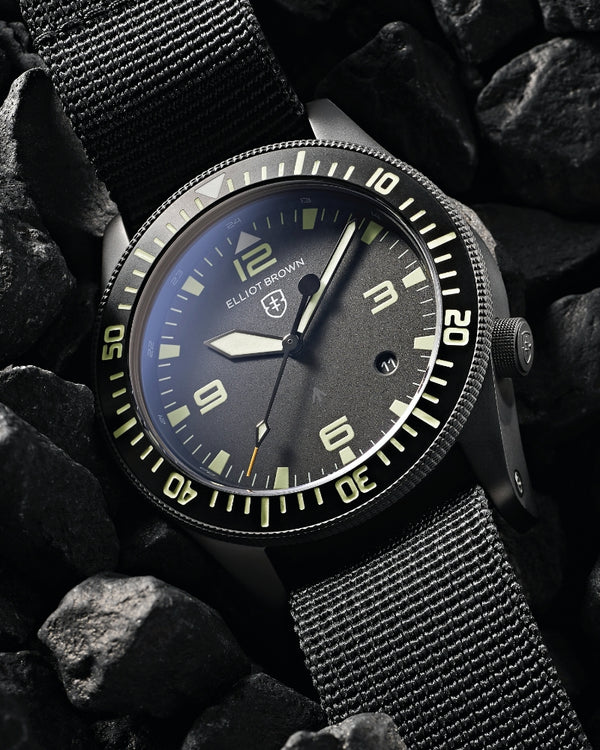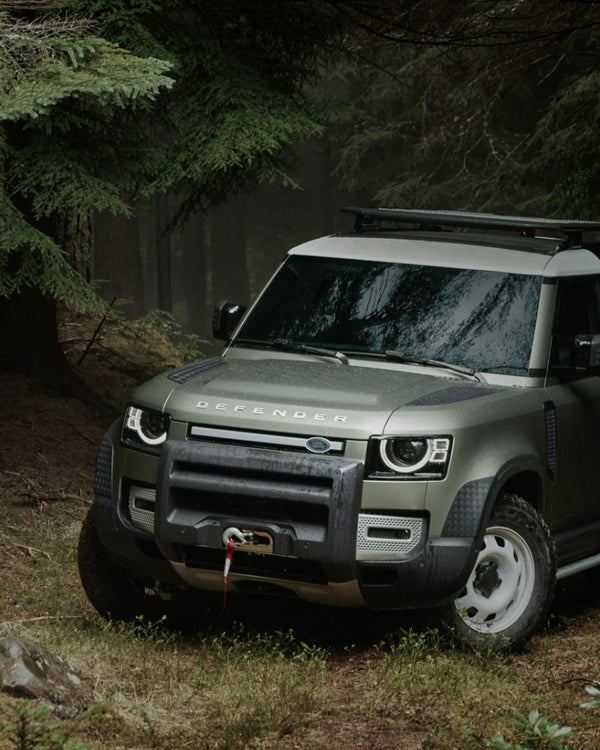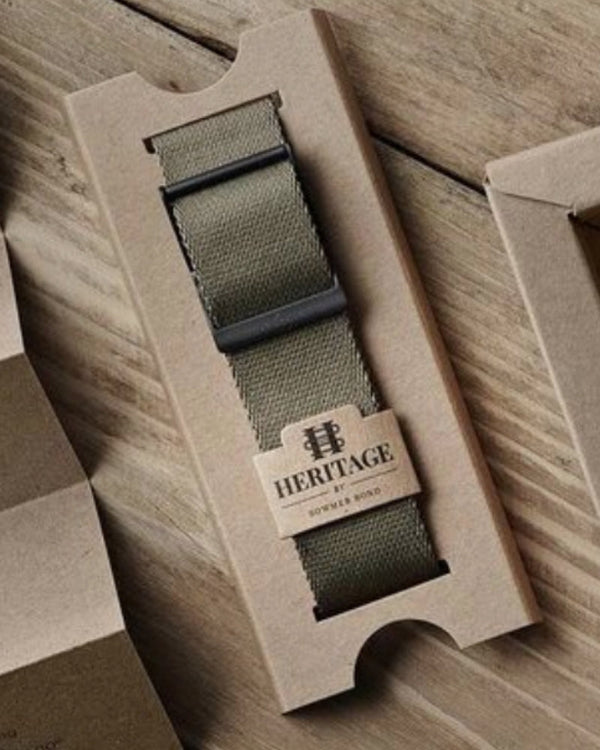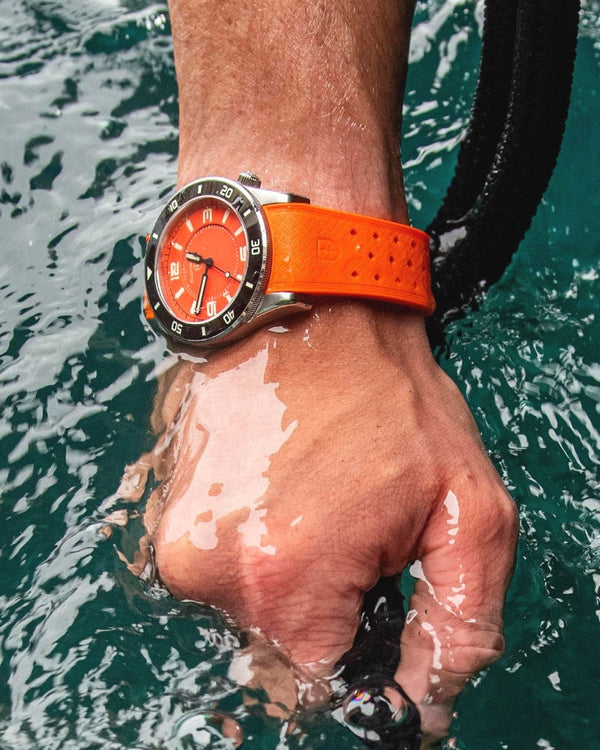An Interview with Max Breet & the Fortitude IV Atlantic rowing team

Photo credit to Ben Duffy @benduffyphotos
Max Breet may be on a restorative break at the moment, but it’s with good reason. Just a few months ago, he and three friends won the Talisker Whisky Atlantic Challenge. Beating 34 other teams and individuals by rowing 3,000 miles from the Canary Islands to Antigua in just 32 days, 12 hours, 35 minutes and 2 seconds!
Known as Fortitude IV, Max, Tom, Ollie and Hugh beat the world record for the fastest distance travelled in 24 hours and at one stage they were on track to beat the World Record for the fastest completion of the race. We thought now was a better time than any to find out how they planned, prepared and coped with the task.

How did the team form?
“Three of us (Tom, Ollie and Max) are friends from school in Bristol and have known each other from the age of 12. Then two of us (Tom and Max) met Hugh in our days at Nottingham University. We all started the race aged 31 and got to celebrate two birthdays on the boat! It’s a coincidence that three of us have a military background, which we found helpful during the race too"
Ollie is acquainted with another rowing team who set the record a couple of years ago and, inspired by their story, he had the idea to compete whilst commuting in the London rush hour on a dreary January evening. We got the call from Ollie asking if we were up for it and placed our race deposit in March 2018!”

How new were you all to the sea?
“Brand new to ocean rowing! There’s a big difference between collegiate rowing and the ocean. It’s vast and can’t be considered in the same league.
Tom has come from a Royal Navy background so he had the most significant experience of ocean seamanship. This was a facet of our success, and phenomenally valuable to have his navigational skills. For the rest of us - well I did a year of rowing at school after which I had decided it wasn’t for me! Hugh and Ollie had joined Putney Rowing Club and tried out a few sessions for technique!”
So did it all come down to the training?
“The training was all consuming. Your time becomes very precious. Trying to balance professional careers at the same time. We had to ring fence weekends in Poole to train on the boat. We all had bespoke gym programmes but the most beneficial training was when we got together as a team and exposed ourselves to the tough environments on the open waves. We probably achieved ten training weekends in total.
The biggest burden was raising corporate sponsorship and charitable fundraising. We needed £140,000 for the race as a project target because we decided early on we would be competitive. Some people just do it for the experience but we wanted to compete and therefore we needed the top level package for equipment. We set a charity target of £250,000 for the West London Zone Charity.
To give you an idea we have now raised £380,000 all in! £235,000 for charity with the re-sale of the boat (and going strong!) which is hugely satisfying."
Why did you choose West London Zone as your charity?
“We knew it was a smaller charity that would see immediate benefits and one we could go on a journey with. Once we had spent time with the charity and its staff, we knew it was a worthwhile mission. It was also at the right stage of scaling for our efforts to be important. It’s a charity that covers an area of London with the biggest disparity of wealth. A big difference between the haves and the have nots. Essentially they send link workers into the local community and schools to work with vulnerable children to raise their opportunities. They’re on hand as a trusted sounding board to guide them through the hard years of secondary school, raise educational standards and then return them to the community to have a positive impact as a result. We went into schools and did sessions and weekend events. We also arranged a huge gala ball for them in late October in the Connaught Rooms raising £75,000 on that night alone.”
We caught up with the rest of the team as we wanted to know whether they'd have similar answers to each other, bearing in mind the fibreglass boat is only 26ft long!
Spending one month at sea with the same three people must be tough?
Ollie: "Despite being some of the most remote individuals on earth and with all the space in the world, the boat did, at times, feel extremely claustrophobic! It was a good job we were all friends and got along otherwise those 32 days would have been miserable!"
Tom: "Yes at times it was, but we are good mates who have known each other for a long time, which helps. We prepared for a long time in isolation together by understanding how to build emotional intelligence and empathy to make the time on the boat run smoothly."
Hugh: "You quickly get into a routine with the other 3 and we were so focused on completing the race as fast as we could, so that was our joint focus."
Max: “That’s probably the most important and critical part of the race. In every other area - across human performance, nutrition, conditioning, weather routing, you are scrutinised. How we coped was testament to our successful preparation, working with top level consultants in communications, team dynamics, stress response and sleep. This was significant in giving us coping strategies. We had a good baseline because we have been friends for a long time. To spend that much time in isolation in a pressured, confined area you need a strong friendship from the start.
It meant we could operate with honesty and openness. However, the pressures of the environment meant that on a handful of occasions we found social friction and were simply crying out for our own personal space. We also found character traits in others annoying! But we were best placed to cope with it. We would have arguments, shake hands and move on. It never lasted long.”
How did you feel when you got to the start line?
Max: “The closer we got to the start of the race, the more it became about the boat and our preparation which was good. It was really interesting actually, as we felt a sense of relief to start. To know that it was now solely about us and our execution of the task. We had nothing else to plan, no events to deliver. Nothing else on our mind. This was the most rewarding part. Really the race was the final 10 per cent of a two-year campaign, it was the culmination of all that hard work.”
Ollie: "For me, it was the perfect balance of nervousness and excitement. It’s a very difficult feeling to explain but after two years of hard work, we just wanted to get started!"
Hugh: "So pleased that we had finally made it to start our challenge after a very long 22 months of training, fundraising and preparation"
Tom: "Excited. Over 2 years of preparation had finally arrived. As most people say, getting to the start line is the toughest part (raising money for sponsorship, raising money for charity (we raised £250k for our charity), training etc... Nervous, apprehensive, scared. Knowing we had an epic challenge ahead of us was pretty daunting. We also knew the weather for the first few days was going to be rough so we knew we have a tough start.
What were the toughest times?
Ollie: "The race certainly takes a toll on your body and I was hurting at least somewhere from day one. However the time when we capsized and thought we had lost all of our comms equipment was pretty tough. But then again it also was a time when we all rallied together and got the boat back in order and cracked on."
Hugh: "Being away from my pregnant wife and little son was tough- both during the training periods and the trip itself. But all, well worth it once I was back with them."
Tom: "The start of the race was tough, it was rough weather and we were all really sea sick for a few days. The middle of the race was also tough - a few days of strong headwinds was like rowing through concrete, not enjoyable! We were rowing flat out and were pretty much stood still.
Max: “Two thirds of the way through we hit a spell of weather which scuppered our chances of breaking the record. We were rowing into a head wind and it was scorching hot. We were putting in the hardest shifts to maintain the race. Whereas others had used their para anchor to play the current against the wind and retain their place in the water, we rowed through it. It was a significant amount of effort and draining. Then when the winds returned east-to-west everyone else gained miles on us and we could do nothing about it.
We were 120 miles ahead at that point but lost 12 miles at once and we could do nothing. It was like a bereavement on the boat and we took it hard. Even though we were still 100 miles ahead! Then the weather changed and we put 20 miles on the competition. Then the big weather came and we were able to do 100 to 110 miles a day! We were experiencing 10 metre wave swells equivalent to two or three storey houses.”
To say we experienced extreme weather is an understatement and there’s only a very small percentage of people who don’t get sea sickness. That’s a grim reality which you have to grin and bear in order to establish an early lead."
What were your most memorable moments?
Tom: "Capsizing, 50 ft waves, horrendous sea sickness, wildlife, shooting stars seeing land for the first time for over a month - was epic. Rowing into Antigua was amazing - all our family and friends were there and it is hard to put into words the feeling - the emotions were overwhelming. Coming into Antigua over 160 miles ahead of the second place team was a great sense of achievement also."
Ollie: "I have lots to be honest. But the vividness of my dreams stands out for me the most. After about 7 days once we got into a routine and were sleeping, I found myself having the most colourful dreams ever. It was amazing"
Hugh: "Feeling like one of the most isolated people on the world was incredible. Seeing birds over 1000 miles from land provided a real sense of freedom."
Max: “There are six or seven moments which will stay with us forever, whether for positive or negative reasons. The rest actually was a lot of battling boredom, monotony, and repetition. It’s a slow event drawn out over weeks rather than hours and days. Luckily, we managed to do it quickly. There’s a vast disparity on race entrants and the kit they use. When we arrived we had a full 48 hours before the next team came in. We won by 168 miles!”

What do you put winning down to?
“The fact of the matter was that no one was as prepared across all facets. We were the most conditioned, best trained on our equipment, with top line equipment, the best nutrition, the best recovery plan and the best shore side team for support. It all fell into place under the theory of marginal gains and added up to total success.”
Back to those memorable moments Max...
“We experienced huge pods of dolphins playing with the boat. Jumping over us. Pods of 100 to 150 dolphins. Whales interacting with us, surfacing with their blow holes within six to ten feet of the boat and huge humpback-like whales - one which went directly under the boat by a few metres. We saw plenty of sea turtles and were assaulted by flying fish! Some real positives were the sunrises, sunsets and the starry nights. You just don’t get these unless you’re in the middle of the ocean. Spectacular shooting stars!
It was a unique experience to celebrate Christmas and New Year at sea. We celebrated in our own way - we enjoyed it but didn’t indulge. The main priority was the speed of the boat.

Were there any really scary moments?
“We did capsize twice in the final 36 hours, that was uncomfortable! It’s an unpleasant experience but the boat is totally up to the task of self-righting. The first time was the more extreme, where we pitch poled. Our weight was forwards and a wave broke on the stern. The nose was submerged and the boat went totally vertical and then flipped over. I was in the sleeping compartment and didn’t realise at the time I was about six foot under water!
Hugh and Ollie were completely submerged and thrown off the boat, Tom was thrown off from the stern too. Thankfully, we all use mountaineering harnesses as safety clips to tether us to the boat but the stern cabin had been left open where all the safety and electronic navigation equipment was based and that was flooded. Tom clambered back on and closed the hatch. I woke up as I crashed into the ceiling. Just as the boat self-righted, we were battered by another wave! We got it back onto its bearing and assessed the damage. We had lost everything on deck - water bottles, the toilet bucket, food supplies - all gone. Ollie had to spend an hour bailing out the stern compartment. Our confidence was knocked but we got on with it - after all we were two or three days ahead of the safety yachts.
Then in the last 12 hours we were rolled over by a rogue wave. Ollie and Hugh were on deck again. Tom and I had doubled up in the stern sleeping cabin - that was tedious and stressful for the final hours.
Then we caught sight of land. It was early evening and having not seen a single sole for 32 days it was incredible to see the harbour lit up in Nelson’s Dock Yard. Random people out on their boats cheering us on. People in the restaurants on the harbour front gave us a standing ovation. Lots of locals and holiday makers cheering and clapping."
What about the future?
“Well we haven’t yet got back onto a boat together! After the event, Hugh had to rapidly head home for the arrival of his second child! He has obviously been consumed with that ever since. Ollie and Tom stayed in Antigua for a bit and I had ten days before flying out to California to start a new career. Maybe we will do another event. Never say never and we’ve talked a lot about it. We would love to do more ultra style challenges - it’s certainly on the agenda for us - whether as a team, on our own or with others. It won’t be the last time we put ourselves through a challenge like that. We are of that mindset!”
Lastly what about your watches - how did they survive a month at sea?
“The watches are great - we all have different ones. I really like mine and actually choose to wear it because it’s not only functional, and in the extreme environment it stood the test, but it’s also acceptable to wear as a professional whilst in a meeting.

Photo credit to Ben Duffy @benduffyphotos























